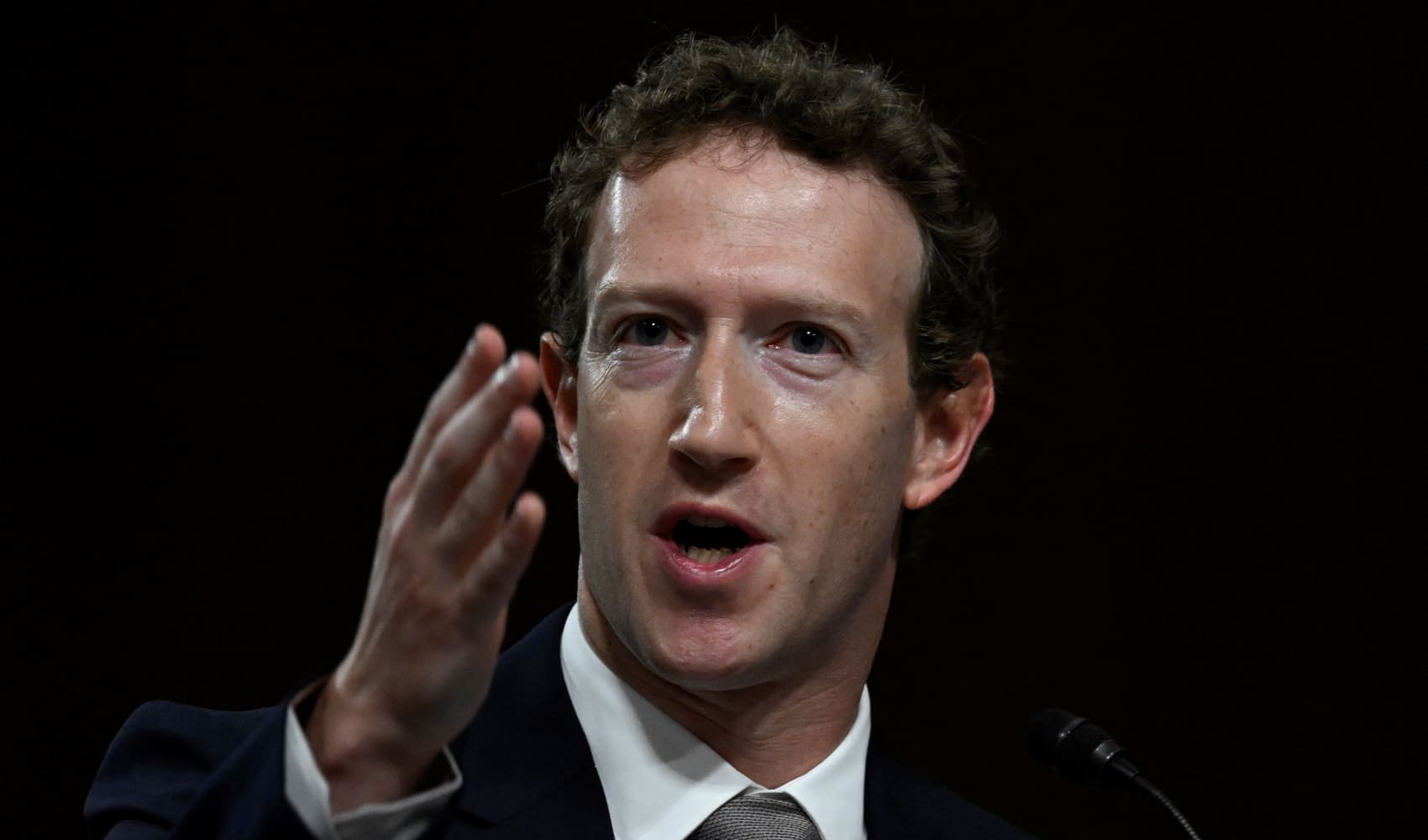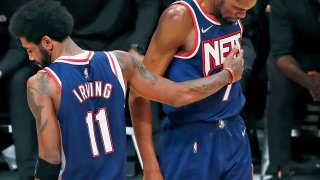
- The Brooklyn Nets were supposed to be a superteam. After two playoff failures, they're shaping up to be a cautionary sports business tale.
- "It's not good for the image of the team – subsequently, it's not good for a sponsor," said longtime sports marketing executive Tony Ponturo
- The team is also searching for its third CEO in three years under owner Joseph Tsai.
The superstar-laden, super-expensive, super-hyped Brooklyn Nets were supposed to be a superteam. Instead, the otherwise lucrative NBA franchise is stinging from another early playoff exit and looking for answers as a costly offseason looms.
Since committing over $300 million to former NBA champions Kevin Durant and Kyrie Irving in 2019, the team hasn't advanced past the second round of the playoffs. Earlier this week, they were swept out of the postseason by the Boston Celtics. Another of their highest-paid players, Ben Simmons, hasn't played since the Nets traded away superstar and former league MVP James Harden for him. (Harden and the Philadelphia 76ers are still alive in the playoffs.)
The team is also searching for its third CEO in three years under owner Joseph Tsai. Rival NBA executives describe the $3 billion organization as "dysfunctional."
Get New England news, weather forecasts and entertainment stories to your inbox. Sign up for NECN newsletters.
"The failure of the Nets," veteran columnist Michael Wilbon said this week on ESPN. "It's the biggest story in sports."
There are still some business positives for the Nets. One NBA executive said the team should still feel bullish about adding business partners since Durant and Irving are marquee attractions, for instance.
Money Report
This year, the Nets should also recover from a $25 million decline in revenue due to the pandemic. The team landed a league-high $30 million per year for its jersey patch ads. In February, Tsai noted the team "set franchise records for attendance, ticket revenue and sponsorships." The team also collected two games' worth of playoff revenue. That's considered extra profit after regular-season revenue covers expenses. Ticket prices are going up, too.
But Brooklyn, the seventh most valuable franchise in the NBA, can't afford to keep coming up short of sky-high expectations. Sponsors don't like to be associated with franchises that fail to live up to the hype, said longtime sports marketing executive Tony Ponturo.
"It's not good for the image of the team – subsequently, it's not good for a sponsor," said Ponturo, the former vice president of global sports and entertainment marketing at Anheuser-Busch. "You want everything to be positive and winning, and you certainly don't want a team with high potential to fall flat on their face in the playoffs."
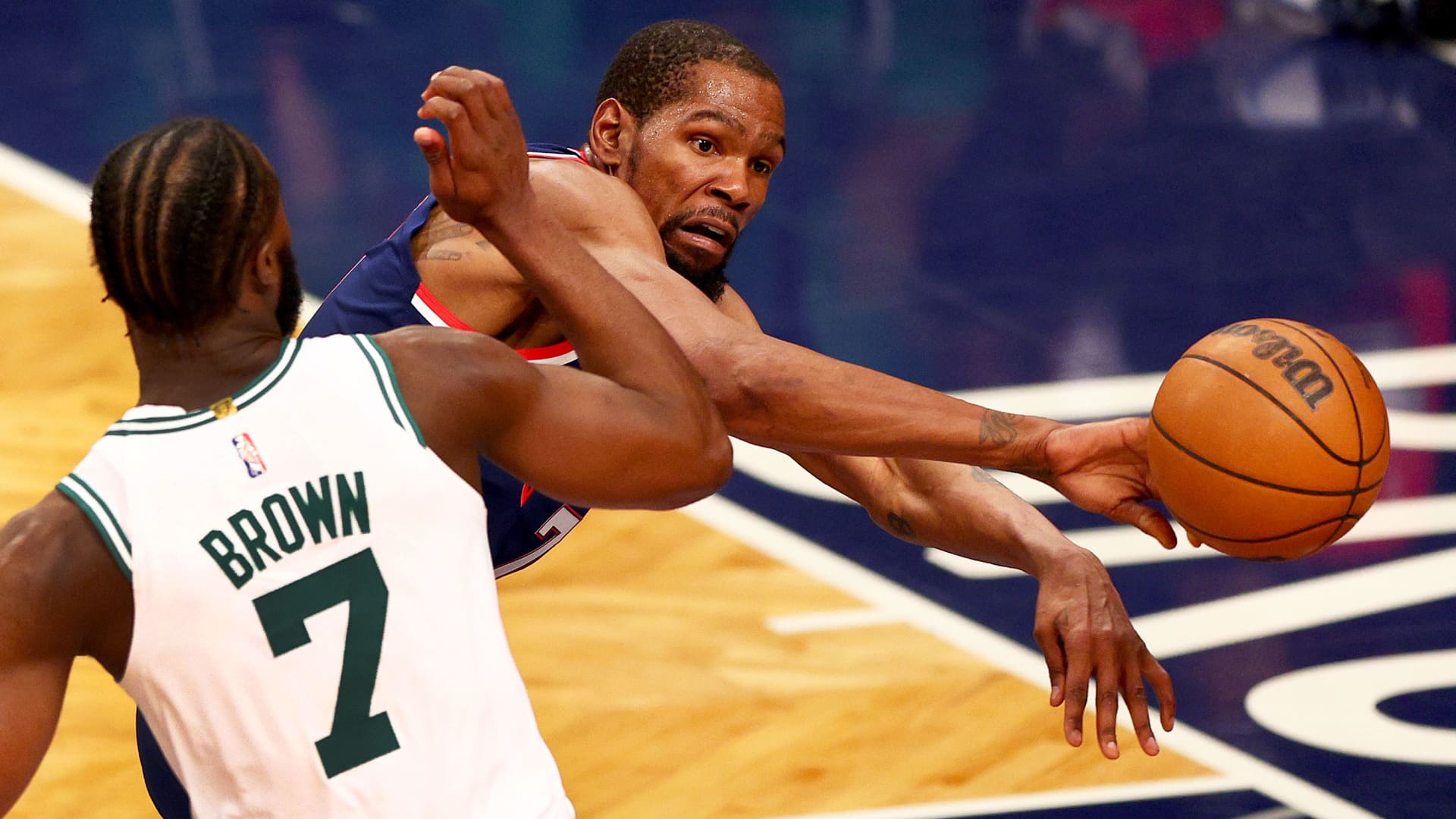
What went wrong in Brooklyn?
For the past two seasons, Brooklyn had the makings of a title-winning juggernaut, at least on paper. The New York Times Magazine wondered last year if the Nets – which featured the playoff-experienced superstar trio of Harden, Durant and Irving at the time – might end up the greatest team of all time.
"We all got mesmerized by it," one NBA executive said of the Nets. "And we were incorrect in assessing those guys as a real threat to the title. It's the perfect example where marketing truly superseded substance."
Instead, the now-departed Harden was injured, and the team lost in the second round of the 2021 playoffs. This year, the Nets traded Harden, who was with the team only for 80 games over two seasons, for Simmons. Simmons didn't play, and the Nets finished seventh in the Eastern Conference, beating the Cleveland Cavaliers in a play-in game for the right to be swept by the surging Celtics.
Injuries were a factor, and so was Irving's refusal to get the Covid vaccine. The Nets had initially banned Irving from playing, only to welcome him back after New York dropped its vaccination requirement. He played in only 29 out of 82 regular season games.
One of the executives described the Nets as "besieged by noise – the distractions, controversy, miscommunication" during Irving's absence. It eventually led to their demise.
The NBA executives who diagnosed the Nets as dysfunctional spoke to CNBC on the condition of remaining anonymous since they're restricted from discussing team affairs publicly.
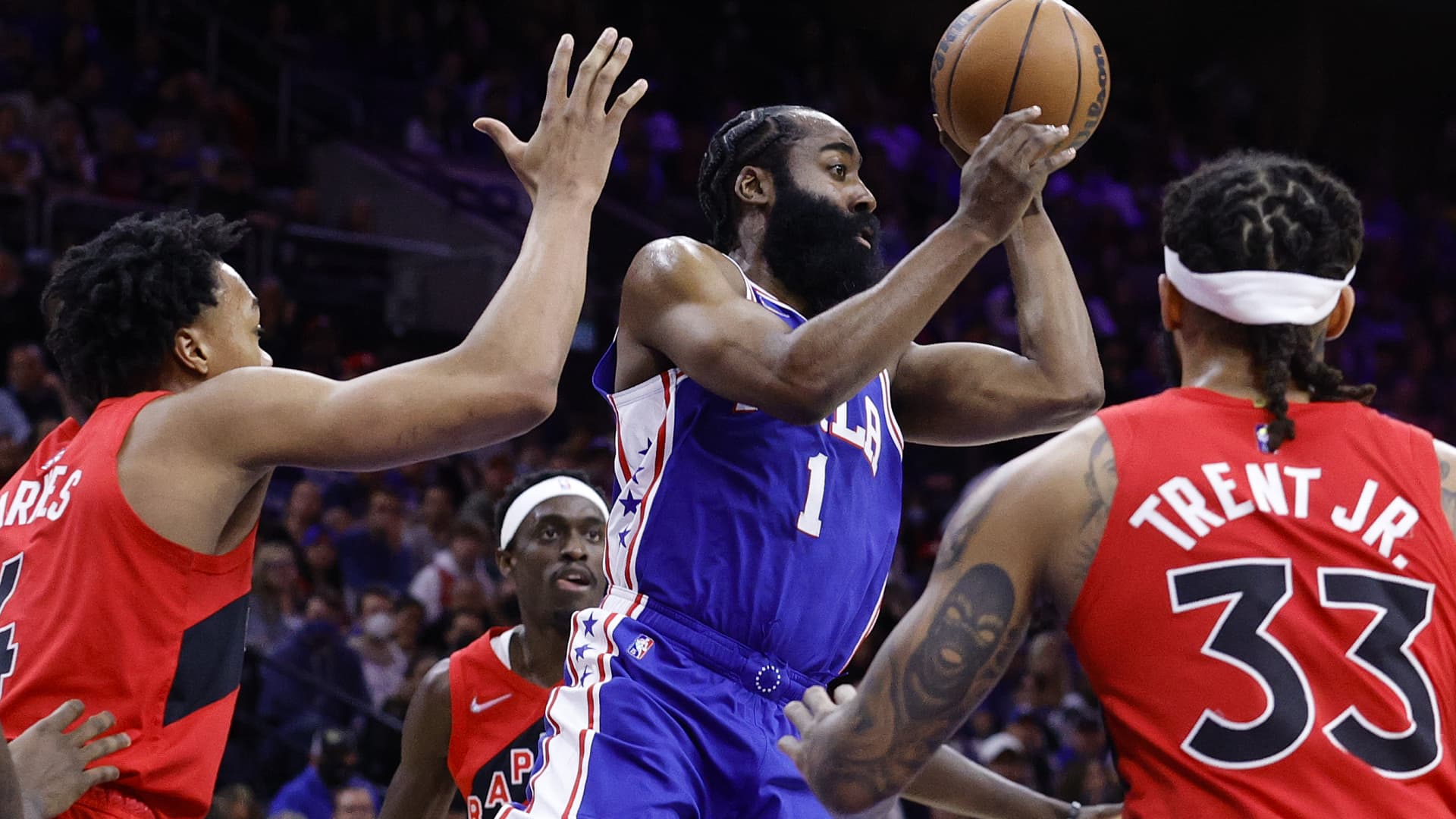
One of the executives said the decision to trade for Harden in January 2021 was the real turning point because it hurt the team's depth. The Nets lost center Jarrett Allen, who went on to become an All-Star in Cleveland. Guard Caris LeVert and forward Taurean Prince were also traded.
"They bought the penny stock," one of the executives said of the Harden deal. "They didn't do the fundamentals, swung big, and it blew up."
Now the Nets are stuck with the talented but troubled Simmons, who is owed about $112 million over the next three years, including $35 million next season. It's unclear when the former All-Star will make his Nets debut. Simmons suffered a back injury and is still contending with mental health issues after his poor showing in the playoffs last year.
The Simmons situation "only creates more noise and distractions for the franchise," the executive said.
Will Nets spend more money?
The Nets face other potentially costly roster issues this offseason, as well.
Irving needs to decide on a $36 million player option, but said he plans to return. One agent suggested to CNBC that guard Bruce Brown's market value could eclipse $10 million per year after his stellar playoff performance. His salary now is roughly $4 million. Patty Mills has a $6 million player option, and center Nic Claxton is eligible for a new contract.
Nets operator BSE global has shown a willingness to pay the NBA's luxury tax, which is a penalty the league applies after a team's salary goes above a certain point. That money is then distributed to teams that don't pay the tax.
For the 2021-22 season, the team's estimated tax bill exceeded $90 million, second behind the Golden State Warriors' tab, according to Spotrac, a website that tracks sports deals. That's slightly higher than the previous season's bill.
Next season, the NBA's so-called soft salary cap will grow to $122 million, with the luxury tax threshold set at $149 million. The Nets' total payroll stands at $187 million for eight players under contract, according to Spotrac. Expect that figure to grow.
Executives questioned how long Tsai, the billionaire co-founder of Chinese e-commerce giant Alibaba, would pay to chase what could be more early playoff exits.
"At some point, an owner looks at payroll and says, 'This is unattainable.' And that money isn't going to a charity. That money is being dispersed to your opponents. Does he double-down and fund [the roster], even at a loss? And if you don't produce the result – a championship – at some point, will it cost Sean?" an executive said, referring to Nets general manager Sean Marks.
Marks did not return a call by CNBC to discuss the matter.
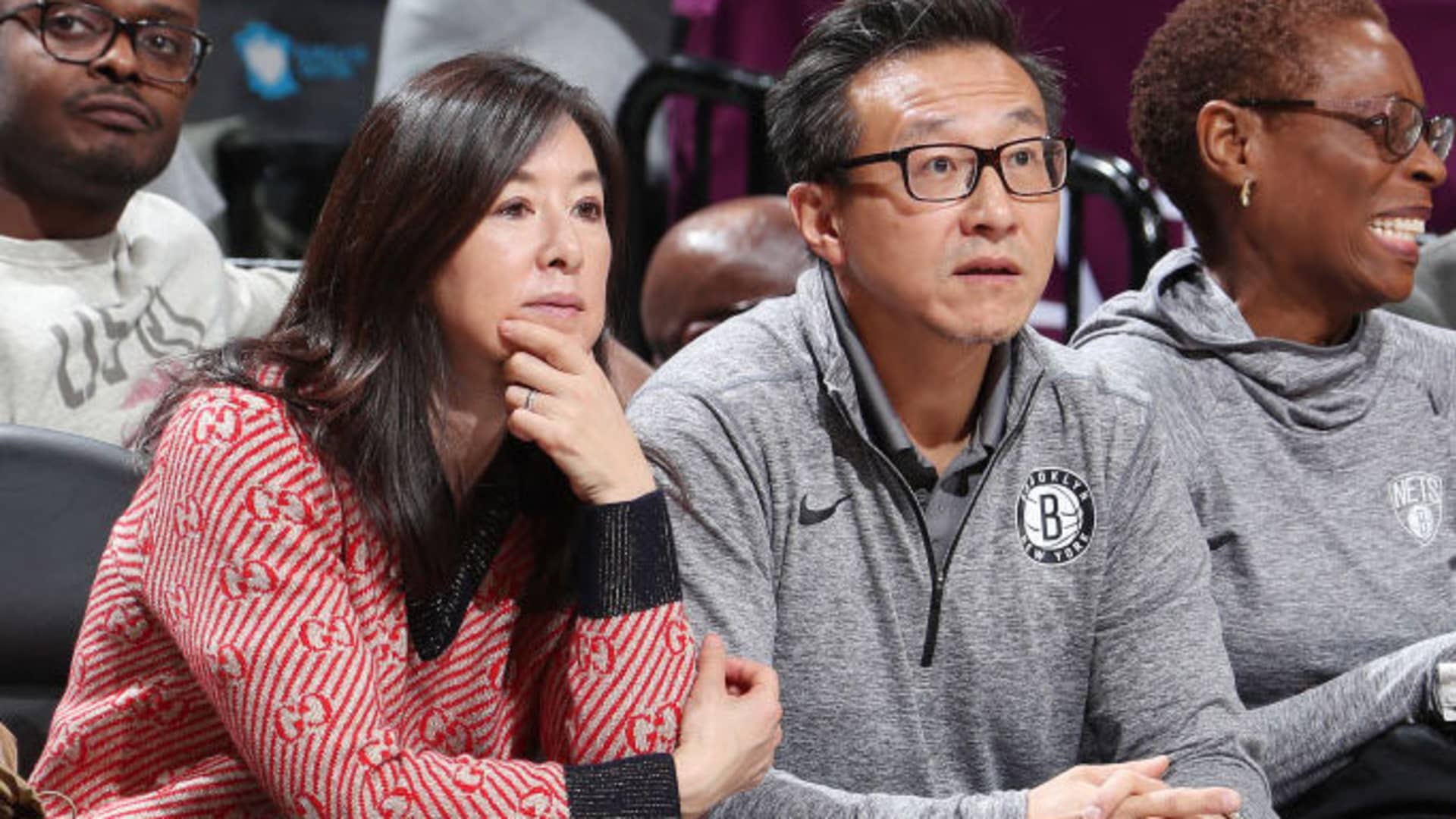
Who is running the Nets?
The uncertainty has created a power vacuum, and one of the team's stars has asserted himself. After losing to the Celtics, Irving suggested he would collaborate with Durant, Marks, and Tsai to "make some moves this offseason" and be "intentional about what we're building and have some fun with it."
On the business side, the Nets are seeking another CEO after John Abbamondi announced he's stepping down effective this July. The move was a surprise since Abbamondi took over the role in July 2020 after current Genus Sports executive David Levy quit as Nets CEO in January 2020 following just five months on the job.
The departures created a sense of confusion about who is running the club and led to other pressure-packed questions. The franchise, for instance, will be scrutinized over whether it will hire a Black CEO.
The predominantly Black NBA has only three Black CEOs, down from a league-high seven in 2007. NBA Commissioner Adam Silver has acknowledged the diversity issue, saying the NBA "can do a better job" regarding hires among "CEOs on the business side of teams."
Two league sources told CNBC the Nets already identified a candidate to replace Abbamondi. The Nets didn't return a request for comment on whether the team's CEO search included a Black candidate.



